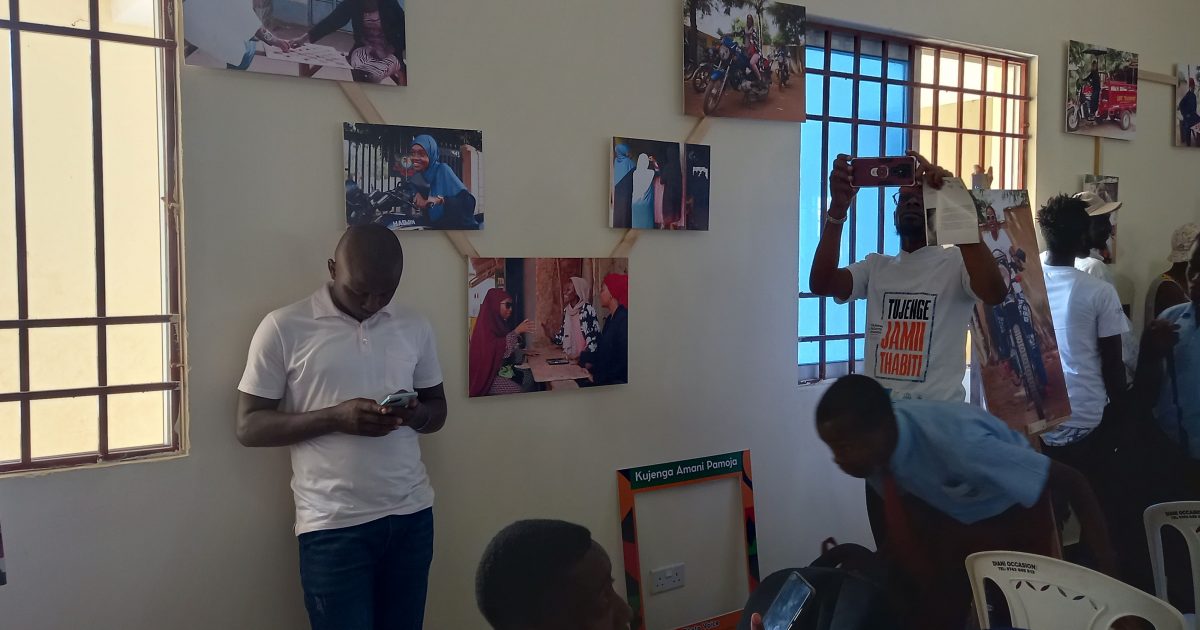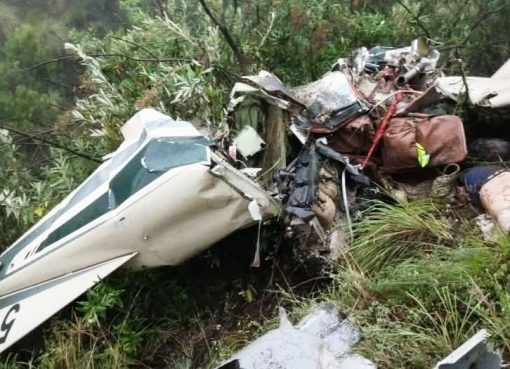More than 180 photos depicting gender stereotypes, daily challenges and aspirations in Kenya, Tanzania and Mozambique were exhibited following an intensive training to young women in photography.
At least 30 girls from the three countries are among the beneficiaries of the programme rolled out by the European Union and implemented by We-World and various partners, under the Kujenga Amani programme.
The programme as per the We World, Kenya Communication Officer Fred Christopher Odera is aimed at promoting peace and challenging gender stereotypes in the respective communities.
Odera said the project dubbed Photovoice was conducted in the framework of Kujenga Amani Pamoja in the three counties to speak up and provide restitution within the targeted communities.
He said that the 30 ladies will be empowered into becoming peace builders and agents of positive change within their communities and help craft a more inclusive and peaceful society.
The initiative comes at a time when the power of visual storytelling is increasingly recognized as a potent tool for social change.
The training was conducted between February and May this year and comprises girls aged 18- 35 years old.
It covered various aspects of photography, including technical skills, storytelling techniques, and ethical considerations in documenting sensitive issues.
The conflict sensitivity was integrated into every phase of the project informed by a deep understanding of the conflict and peace dynamics specific to the targeted communities.
Through the programme, participants were encouraged to capture and highlight stories that promote peace, unity, and resilience within their communities.
Odera said the photographs produced by the young women were showcased in local exhibitions and online platforms, providing them with an opportunity to share their unique perspectives with a broader audience.
“We trained over 10 girls in each country and compiled their photos, which convey specific messages,” he said. Odera noted that through their lenses, the young women will be able to share powerful narratives and reinforce the critical role of women and girls in promoting peace and challenging societal norms.
He said the program focused on young women to help amplify their voices in the regions where they are often underrepresented in the field of photography and public discourse.
Odera said We World supports the use of the media and arts to empower youth and open a dialogue at community level to reduce and manage tensions and challenge harmful stereotypes.
The communication officer announced that a regional exhibition focused on photo-voicing is still in the planning stages.
“Following this regional event, the exhibition is set to travel to Italy, where it will showcase the various challenges faced by communities in Africa, as well as highlight the efforts of peace promoters across the continent,” he said.
He noted that the international platform will provide a unique opportunity to amplify the voices of young women and bring global attention to their powerful visual narratives.
He said that they believe that by continuing to invest in the talents and aspirations of young women, they can contribute to lasting peace and gender equality in East Africa and beyond.
Odera noted that they are also working with various Civil Society Organizations (CSOs) and local authorities. He said through the partnerships, rights-focused NGOs receive regular training and grant support to better understand conflict dynamics and promote peace among youth in maskanis—informal gathering places within communities.
Odera said the efforts aim to address and combat Gender-Based Violence (GBV) within the communities, ensuring that both peacebuilding and the protection of rights are prioritized at the grassroots level.
A beneficiary Mwanaharusi Rashid expressed their gratitude for the opportunity, noting how the experience has empowered them to view the world differently and to act in promoting peace through their newfound skills.
She said they are looking forward to applying their skills in their local communities, using photography to document and address issues such as conflict, poverty, and gender-based violence.
She explained that during the training, they utilized lesos, traditional coastal cloths worn by women as a medium to convey messages of peace and love.
Lesos are commonly used by the Swahili people along Kenya’s coastal strip, often adorned with specific messages that reflect the occasion, serving both as a symbol of beauty and a tool for communication.
She added that the team also visited youth maskanis and boda boda stages to raise awareness about gender equity and peace through photography.
“Our conversations focused on embracing new gender norms to promote equal development and create a peaceful environment where everyone can thrive,” she said.
By Chari Suche




